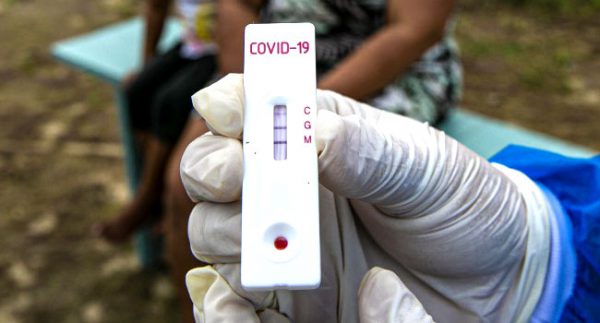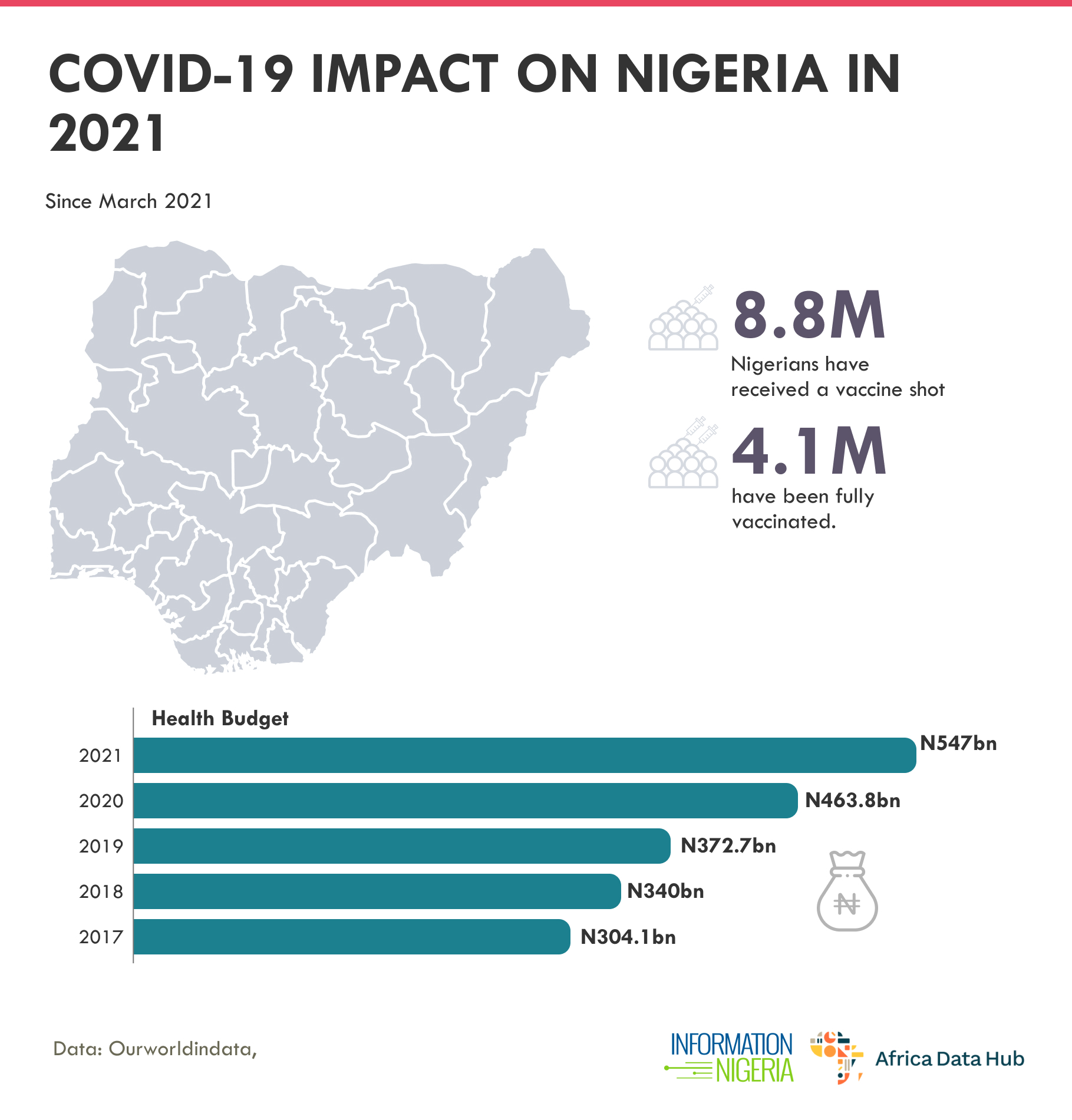COVID-19 Impact On Nigeria In 2021

As the year draws to a close, it is critical to assess the impact of the COVID-19 pandemic on the country, as the virus appears to be here to stay, as indicated by the recent discovery of new strains and the announcement of a fourth wave.
The virus’s spread
Throughout the year, Nigeria saw an increase in the number of COVID cases, which appeared to be threatening to overwhelm the country’s already overburdened health systems. In the year that the world experienced the outbreak, Nigeria registered 88,719 cases of the virus based on the statistics available at the start of the year, 2021. Nigeria, on the other hand, had documented around 227,000 cases of the virus as of the time of posting this article. In other words, in the year since the country began immunizing its residents, the country has seen an increase in the number of cases by recording approximately 138000 cases which represent approximately 61% of the cases in the country.
Vaccination
Since the vaccination campaign began in March 2021, the country has obtained vaccines from a variety of pharmaceutical corporations, including Pfizer, Moderna, Johnson & Johnson, and AstraZeneca. Approximately 8.8 million Nigerians have received a vaccine shot, representing 4.3 percent of the total population, while approximately 4.1 million have been fully vaccinated, or 2.0 percent of the whole population, as of the time of filing this report.
Budget

The overall national budget in 2017 was N7.4 trillion. The health sector received N304.1 billion, or 4% of the total. The national budget for 2018 was N8.6 trillion, with the health sector receiving N340 billion, or 3.9 percent of the total. Even as the country strives to combat the pandemic, the budget remains low in 2019, 2020, and 2021. In 2019, the health sector was budgeted for 372.7 billion, accounting for 4.18 percent of the total budget; in 2020, the health budget of 463.8 billion represented a meager 4.16 percent of the total budget; and in 2021, the health sector was budgeted for 547 billion, accounting for 7% of the total budget.
A total of N45.81 billion was earmarked for COVID-19 interventions in the 2022 budget proposal. The sum, primarily from the health capital budget, accounts for around 23.54 percent of the total capital budget for health and 5.6 percent of the overall health budget of $816.15 billion, or 4.8 percent of the anticipated budget of $17 trillion.
Economy
COVID-19 has continued to have an economic influence on the country’s export and import volumes. Nigeria’s total commodity terms of trade (ToT) fell by 2.85 percent in the third quarter of 2021 (Q3’21), despite a 2.3 percent drop in commodity exports.
This is the third consecutive quarterly fall in commodity ToT, and the largest so far this year. In Q1 of this year, commodity ToT fell by 0.51 percent, and in Q2 of this year, it fell by 0.35 percent.
When the terms of trade improve between two periods (or when TOT exceeds 100 percent), the value of exports rises compared to the value of imports, allowing the country to buy more imports for the same amount of exports.
COVID-19 has affected the finances of many countries of the world including Nigeria’s trade partners, thereby affecting their purchasing power. This factor coupled with insecurity and the drive towards environmental sustainability has occasioned this development.
Unemployment rate
Nigeria’s unemployment rate has continued to climb as a result of the pandemic. Currently, 35.2 percent of the working-age population is unemployed. This is the highest level in the last five years.





